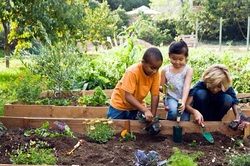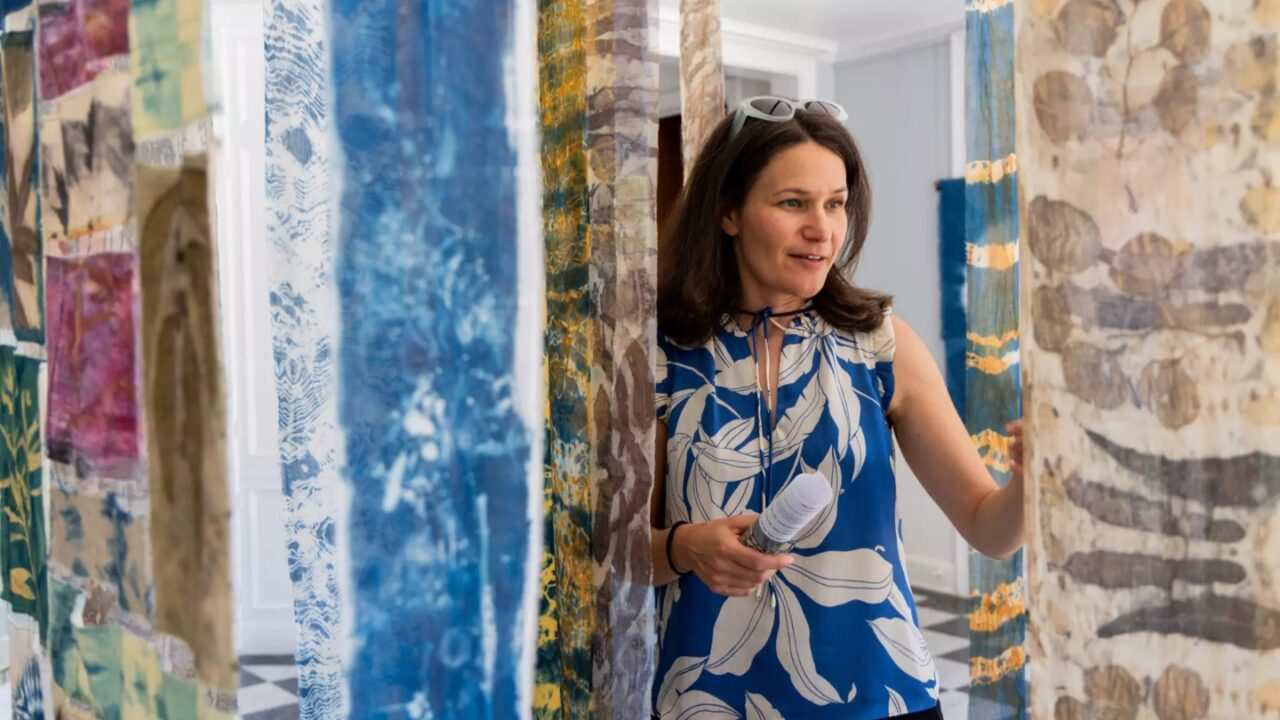
E3 Club sows seeds for schools
The Daily Bruin featured an article about the student group's initiative that educates kids about nutrition and sustainable food production through garden projects.
By Ariana Ricarte
Originally posted in The Daily Bruin
Guarded by a chain link fence near McKinley Elementary School’s rambunctious playground in Santa Monica, an enthusiastic group of second graders fights over their vegetables.
As a few drops of rain begin to fall, they huddle around Claire Josephson, a fourth-year communications student, with their hands outstretched, waiting for her to shake tiny seeds into their palms.
Josephson spends her Wednesday mornings at the elementary school’s garden as a participant of E3’s Garden Mentorship Program, an initiative by the student group to educate kids about better nutrition and sustainable food production.
As the largest student sustainability organization on campus, the goal of E3, which stands for Economy, Ecology, Equity, is to inform UCLA students on environmental issues, said Joanna Wheaton, co-chair of the club, third-year political science student and former copy editor for the Daily Bruin.
In school gardens, UCLA volunteers work side by side with the students, sharing gardening tips while getting involved in the occasional dirt fight.
“You come to realize how easy it is to garden,” Josephson said. “Anyone can do it and it’s rewarding because you really have control over your food.”
McKinley Elementary School’s garden is one of many started by the Santa Monica-Malibu Unified School District in 1995 to make the classroom curriculum relevant to the outdoors.
The garden, with its gravel walkways and wooden arbors, is separated into about 18 plots of soil, each holding a variety of vegetables and edible flowers.
Since many of the students are reluctant to eat food straight from the ground, Debbie Harding, a certified master gardener at McKinley, said she encourages them to taste the vegetables growing in their plots.
“Kids are more willing to try healthy food if they make it themselves,” Harding said.
As a master gardener, Harding is trained to work as a volunteer to teach the community about how to most efficiently grow food.
As the students work in the soil, Harding explains how the seed will eventually turn into a plant that they can eat straight from the ground.
The fruits and vegetables grown in the garden are given to the school’s cafeteria and sold to the students’ parents.
Lucia Burke, a master gardener who has been involved in the garden program for several years, said that the kids look forward to their time to work in the garden.
“The teachers say that when they ask the students if they want to go to the garden, they all raise their hands at once,” Burke said.
In addition to visiting McKinley on Wednesday mornings, E3 works at Olympic High School and Santa Monica High School once a week. Members sign up for gardening shifts when they wish to visit the gardens, although they are encouraged to volunteer at least twice a quarter, said Rebecca Verlaque, a fourth-year international development studies student and director of the Garden Mentorship Program.
In another effort to show kids the benefits of growing their own food, the club engages students in a “tasting day,” where they eat the food of their harvest, Verlaque said.
By working with the kids at the garden, UCLA student volunteers are equally inspired to make sustainable lifestyle changes.
“I just made my own planter box with a shipping pallet. I was inspired by the beds here,” said Heather Campbell, a third-year sociology student, her knees deep in the soil with the kids. “I’ve planted some peas, and they have already sprouted.”
UCLA’s involvement with the elementary school is a great step toward a more sustainable future since it educates students early on about being environmentally friendly, Verlaque said.
In addition to gardening, the master gardeners and volunteers also teach students about the environmental benefits of composing, encouraging students to add the worms they find to the compost bin.
“I didn’t get a very in-depth environmental education until I came to UCLA. Exposing kids to critical global issues at such a young age gets them learning as soon as possible,” Verlaque said. “It’s a gateway for them for when they get older.”By Ariana Ricarte
Originally posted in The Daily Bruin



